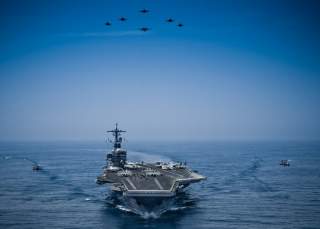Asia's Nightmare Scenario: A War in the East China Sea Over the Senkakus
America & Japan vs. China. Who wins?
If the operational balance is as I have suggested here, then this is the situation Washington would face in a conflict with China in support of Japan over the Senkakus. The outcome would depend on the balance of resolve. It would only be wise for America to enter a conflict with China if Washington was confident both that Beijing was less resolved to win than they were, and that Beijing understood this. Only then could Washington be confident that Beijing would accept defeat before the conflict had escalated right out of control, and cost America more than the objectives at stake were worth.
So which side has the greater resolve? Is America more committed to preserving the primacy it has enjoyed in Asia for over a century than China is to restore the primacy it enjoyed for centuries before that? I think the answer is probably no. We cannot assume that China is any less determined to change the Asian order than America is to preserve it. Nor can we simply assume that China’s leaders would be too nervous about domestic stability in China to allow a conflict with the US to escalate. On the contrary, public option might well stop Beijing from retreating just as much as US opinion would stop Washington – and probably more so.
Ultimately it is a simple question of geography. What happens in Asia, and the waters around Asia, really matters to China, just the way what happens in the Caribbean really matters to America. If we assume that America cares more about the Caribbean than China, we should equally accept that China cares more about the Western Pacific that America. And most importantly, this is probably the way China sees the balance of resolve. That makes China a very dangerous adversary.
If the US enters a conflict with China underestimating China’s power and resolve, it may find itself facing a choice between accepting defeat and conceding victory to China after a protracted conventional war, or risking escalation to a nuclear exchange. So unless Washington is very confident that it has greater resolve than China, it would be far better to avoid conflict in the first place. China’s willingness to risk a clash by its provocations towards Japan suggests that it sees the situation this way, and expects America will too. That is why Beijing is so confident that Washington will avoid a conflict by abandoning Japan.
What does this mean for America’s position in Asia? It does not mean that America has no choice but to withdraw from Asia. But it does mean America needs to reconsider the assumptions on which US policy in Asia, including the Pivot, has so far been based. Washington assumes that America’s basic strategic aim in Asia must be to preserve US primacy and the system of alliances on which it is based. If the analysis presented here is right, America cannot do that in the light of China’s challenge to the US-led regional order, because it is not ultimately as willing to risk an escalating conflict to preserve it as China is to overturn it. The best way to define what role America could sustain in Asia in future is to ask what role America would be willing to risk a nuclear war with China to protect. For example, America might not be willing to risk nuclear war to preserve its own primacy in Asia, but it might be willing to do so to prevent China establishing primacy. But that is a discussion for another time.
Hugh White is professor of strategic studies at the Australian National University in Canberra. His book The China Choice: Why We Should Share Power was published in the US last year by Oxford University Press.
Image: Flickr/U.S. Navy/CC by 2.0

